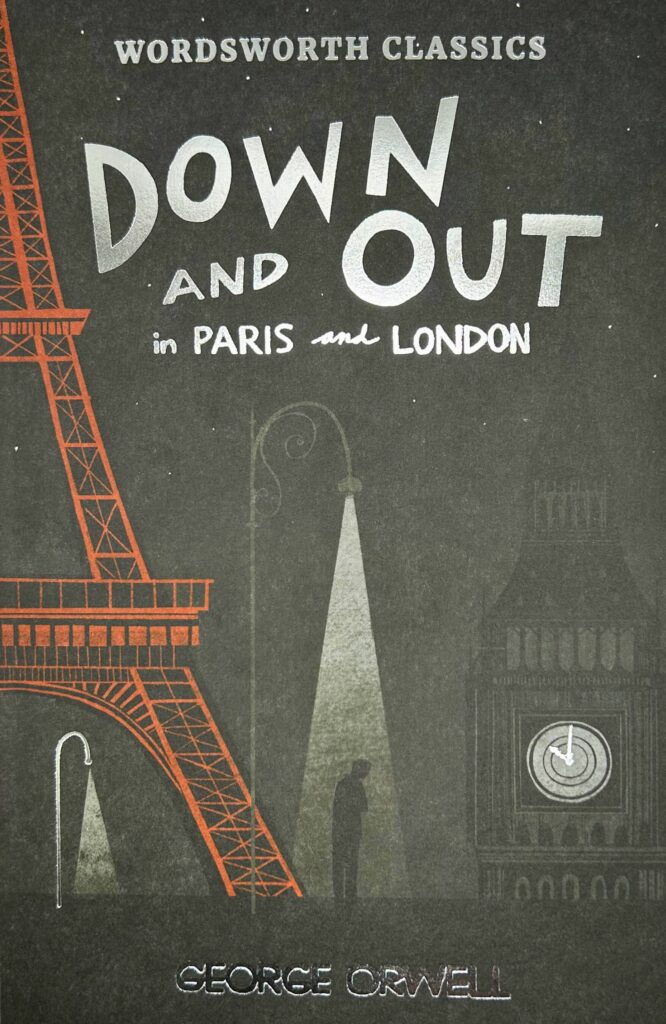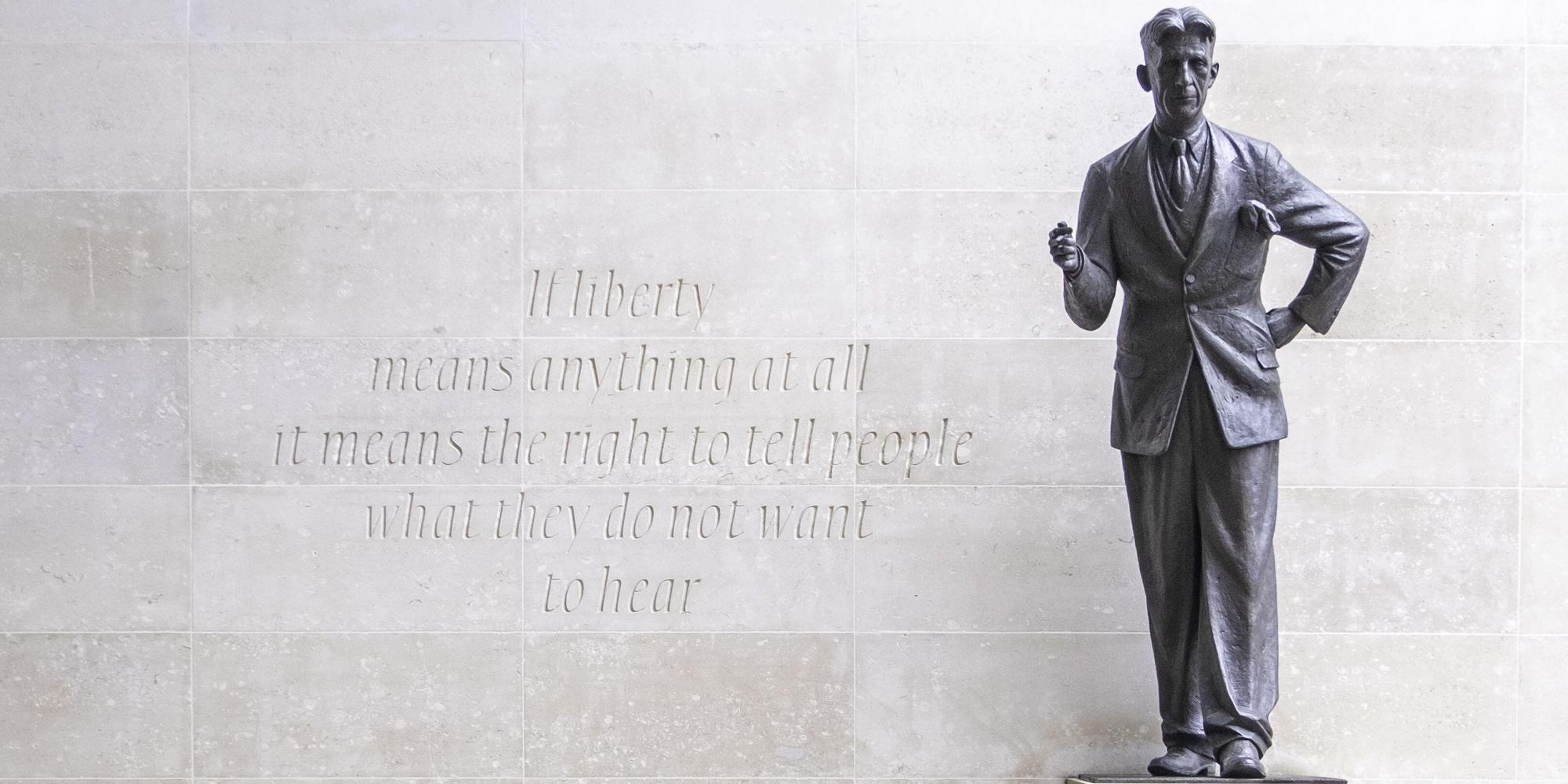
Orwell and Women
As new biographies revisit George Orwell’s standing and attitudes, Sally Minogue considers Orwell and Women
George Orwell’s reputation both as man and as writer has been placed under re-examination of late. New biographies of both him and of his first wife Eileen O’Shaughnessy have re-evaluated his standing, and I have just finished listening to this week’s Open Book on BBC Radio Four (repeated August 31st, 15.30) where his character was comprehensively impugned – to my mind with a bit too much appetite, and without enough balance or critical acuity. One of the important new commentaries is D. J. Taylor’s Orwell: The New Life, 2023 (so-called because he had already published Orwell: The Life in 2003). Taylor’s conclusion is that ‘Orwell remains an indispensable reference point today’ and Blake Morrison (The Guardian, June 1 2023) agrees – with a caveat: ‘But in a changing moral climate [Orwell] has ceased to be Saintly George and become a murkier figure’. That murkiness was the burden of the Open Book programme, issuing charges of anti-semitism, homophobia and misogyny. Meanwhile Douglas Kerr has concluded in his Orwell and Empire (2022) that though Orwell was undoubtedly anti-imperialist, he could never fully escape an Anglo-Indian mindset, i.e. that of the colonizer rather than the colonized.
These are all arguments of our historical moment, born out of larger ideological activist movements such as Black Lives Matter and Me Too, which have promulgated revolutionary critiques of attitudes which in earlier years might have been taken for granted. Orwell stands pretty tall above the cultural parapet, as once he stood too tall in Spain and attracted a sniper’s bullet. His work has also been long connected with our sense of him as a person occupying the moral high ground (hence Morrison’s ‘Saintly’). So it’s not surprising that some critics finally have him in their sights. My principal concern in this blog is his attitude to women, in so far as we can discover that in his writing and in his life. But there are three key principles which can be applied when considering any of the areas of critique mentioned. One of these is to distinguish between the writer and the person. The second is to distinguish between kinds of writing. The third is to take into account the difference between our historical moment and that of the writer. I felt the Open Book programme fell short in all three of these areas.
So, the writer and the person: we are familiar with many writers who lived reprehensible lives, and whether someone can be a good writer while being a ‘bad’ person is a frequent topic of discussion. In this respect Orwell is scarcely a ‘bad’ person; the question is whether he is a less good person, and particularly in certain areas, than we once thought. Next, different kinds of writing: Orwell is unusual in that his essays are as significant as his fiction. Essays necessarily express a personal view while the relationship between fiction and the novelist’s own ideas is a much more complicated one. Finally, the historical moment of the writer and the writing vis-à-vis that of the reader: one view here is that a writer can be forgiven for sharing positions that were the norm in the writer’s time, but in this respect I’ll argue Orwell can’t be excused since he saw very clearly the wrong-headedness of many of the attitudes of his own time.
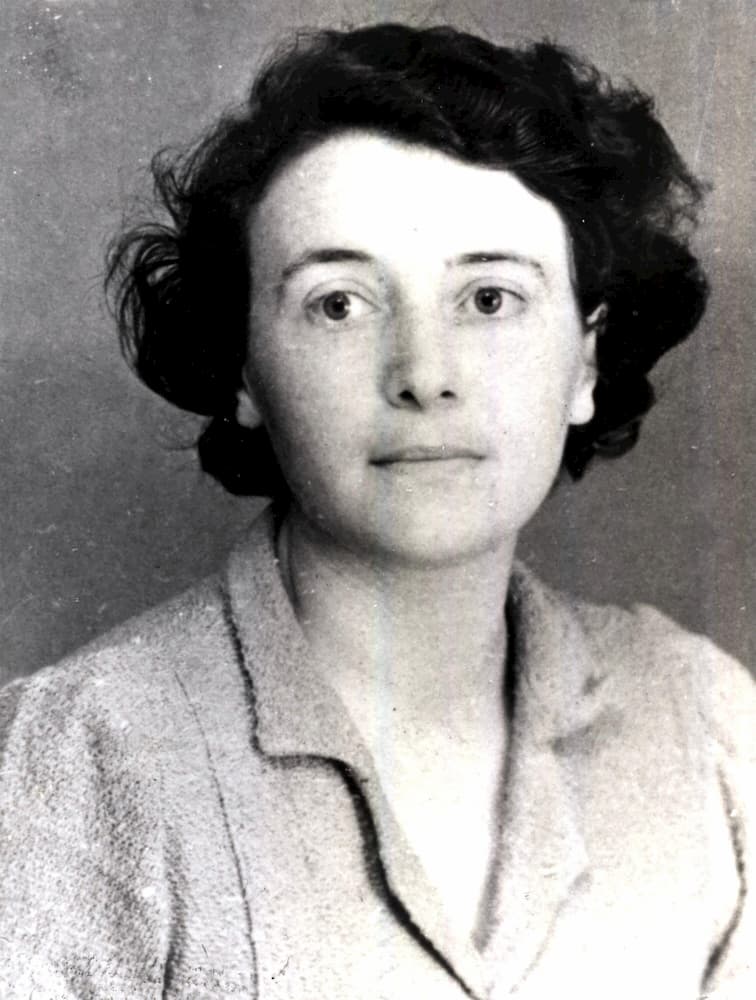
Eileen O’Shaughnessy
Let’s look then at Orwell’s attitude to women, with these principles in mind. A new book which has made a splash is Anna Funder’s Wifedom: Mrs Orwell’s Invisible Life (2023), which shines a light on Eileen O’Shaughnessy, Orwell’s first wife. It was Book of the Week recently on Radio 4 (now available on BBC Sounds) and Funder contributed to the Open Book programme. It has had mostly glowing reviews. I have listened to the abridged radio reading (but not read the full work). I took against it immediately and am now asking myself why. I know and resent the fact that women have been written out of the story so many times, which is at the heart of this book, and I like Funder’s reflections on her own ‘wifedom’ in relation to that of Eileen’s. I was already familiar with Orwell’s absolute commitment to his work, which enabled him to blank out everything else, including the needs of his new wife, and the way she dealt with the many things in his life that he didn’t have time for because of his writing. These things Funder was revealing in detail, something I would normally applaud. So why am I unsympathetic? I think because Funder didn’t take account of any of the principles I’ve outlined above. Of course, principles don’t necessarily make a successful book. Undoubtedly Funder’s style grabs the reader. It is parti pris, it works via vignettes in which Orwell is pretty much the monster while Eileen is the put-upon wife who is doing all the work. In her section on the Spanish Civil War, Funder certainly highlights Eileen’s political role and her endangered position in Spain, which are much underplayed in Homage to Catalonia (where she is referred to by Orwell only as ‘my wife’). But the premise of this book, as signalled by the title, and its introductory passages, is that Eileen’s life has been invisible. In fact, there is an extant, recent biography of Eileen by Sylvia Topp, published in 2020, Eileen: The Making of George Orwell (her debt to which Funder acknowledges). [1] That work draws on substantially the same material as Wifedom, so really, since 2020, Eileen has not been invisible. Topp however follows much more standard biographical lines, quoting chapter and verse; sadly for her, the Guardian reviewer (Susie Wyndham, July 6 2023) of Funder’s Wifedom notes that, partly as a result of its very careful detail, Topp’s work ‘lacks the synthesis and panache of Wifedom’.
I’d argue that Funder’s work, concomitantly, lacks the attention to evidence that Topp shows. Wyndham notes in her review, without demurring, indeed perhaps admiring: ‘To fill gaps, Funder imagines nuanced novelistic scenes’. In other words – she makes things up. The difficulty is knowing when that is happening and when not. One example of this sort of imaginative speculation (which certainly occurs in all biographies, but which is usually marked out by phraseology such as ‘It is likely that …’ or
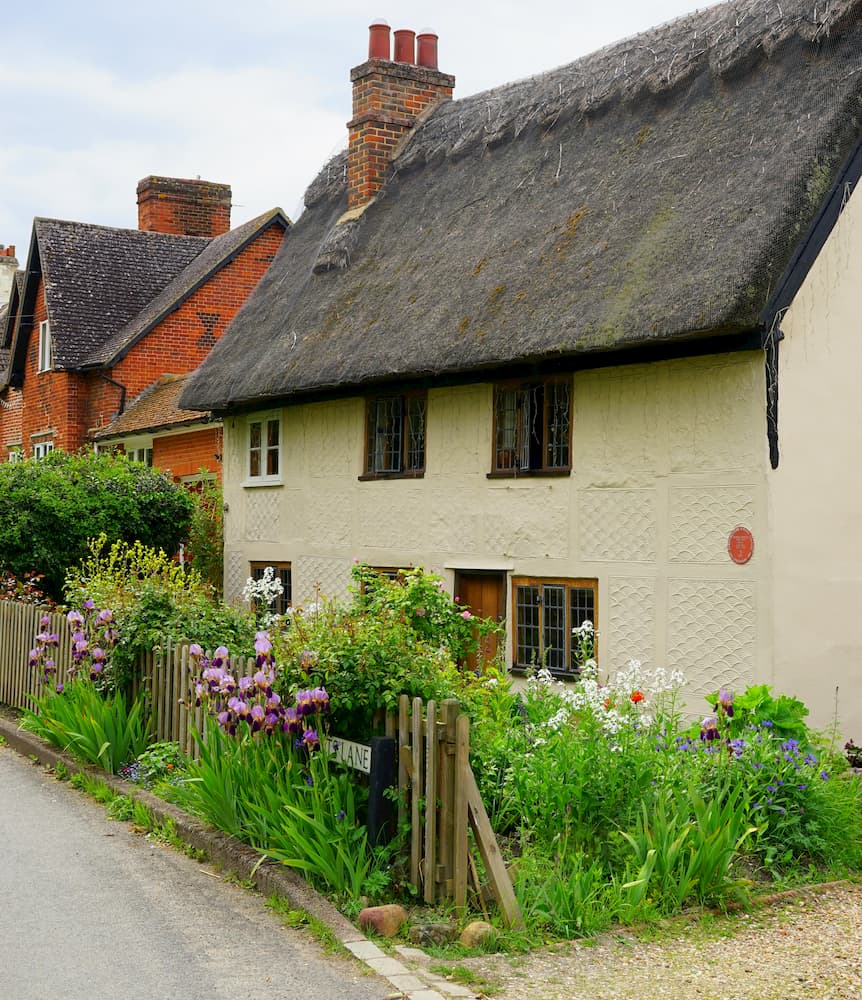
George Orwell’s former home – The Stores at Wallington
“X might at this point have thought…’) occurs when Funder describes in detail an occasion early in the marriage when they are living in an unheated cottage in a small village, Wallington, with no electricity. Eileen has to clean out the filthy latrine (outdoor lavatory) while George happily writes in his upstairs study. With the preamble, ‘He hadn’t felt well enough to do it’, Funder employs a Woolfian free indirect style to describe events through Eileen’s thoughts. Midway through her work, with ‘dark muck flowing over the seat … in his green fishing waders … covered in shit’, she hears his voice float down –‘“Teatime – don’t you think?” … Her blood was ice.’ Readers and listeners to Wifedom will leave with an impression of Orwell as a monster (indeed the chair of the Open Book discussion described the scene as ‘monstrous’) because they will think these ‘novelistic’ scenes are on a par with the factual ones. Immediately after this scene George comes downstairs, ‘blood all down his old blue shirt … faced with blood and death, she finds herself firmly on his side.’ So clearly Orwell wasn’t ‘well enough to do it’. Somehow, though, it’s the shit that makes the impression.
So that is Orwell the husband, the person. Being that person enabled his writing ; but being a bad husband does not make his writing less important. What matters when we read it is that we understand, through the good offices of writers like Funder and Topp, what sacrifices his wife made to help him to produce that writing. If we take a hard line, we might want to say that we shouldn’t read the writing: the female sacrifices were too great, in the same way we might say that we shouldn’t read colonialist writings, because the human sacrifice was too great. Here, I’d argue for a more nuanced reading. Marriages are opaque at the best of times, and I want to allow for some agency on Eileen’s part in this marriage. The choices were hers as well as his. Of course those choices were in part socially determined and not free to either of them. That does not justify the choices each made, and the odds were always stacked against Eileen. But here we have Funder interpreting Eileen, determining what she might have been thinking, and then presenting that as the truth (it is a different case, obviously, when she is quoting her letters). The major complaint against Orwell should be made not in loaded word pictures, he in his writing eyrie, Eileen below shovelling shit, appealing as that contrast is for Funder’s case – but in terms of his understanding of principles of fairness and equality. He could recognize the careless exercise of power as an officer of colonialism, and could paint it in words; if in his own life he failed to see that he was exercising the same power over someone by virtue of their gender and legalistic relationship to him, that is a fault. A cooler take in these terms by Anna Funder would have been in the end more telling.
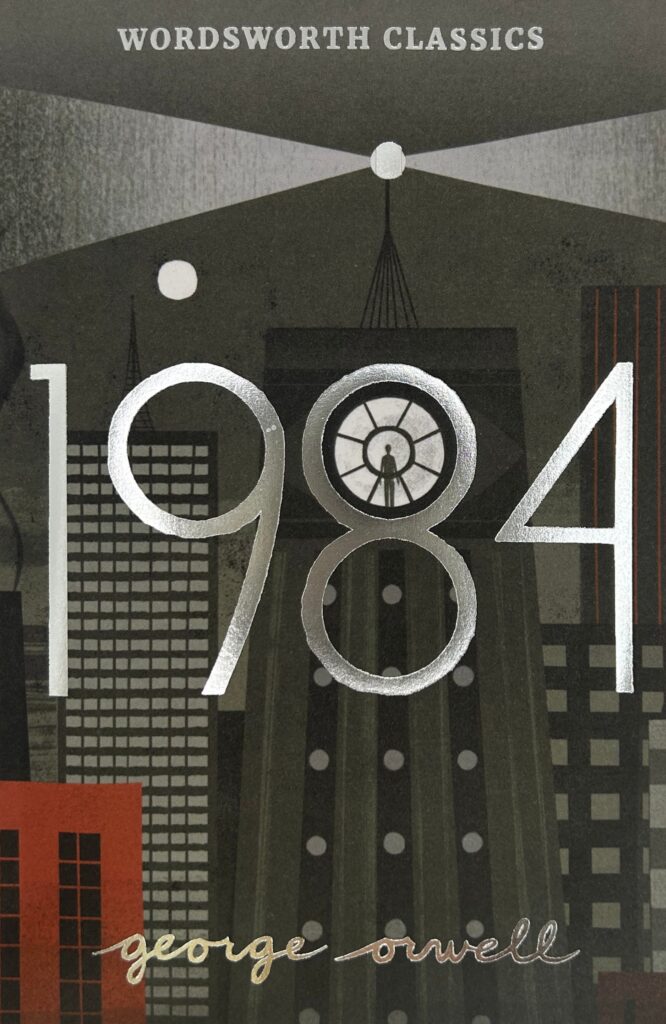
Our edition of ‘Nineteen Eighty Four’
And so to different kinds of writing. Orwell’s essays are important when judging him in relation to ideas about empire, nationalism, socialism; on the whole they say little about women, which is perhaps in itself revealing. The Open Book programme drew principally on his fiction to talk about his attitude to women, and conflated uncritically Winston’s view of Julia in Nineteen Eighty-Four with Orwell’s. This is such a crass error that it is hard to imagine that it would have been made except in the larger context of looking at Orwell from an ideological perspective. All writers of fiction reserve the right to depict views they do not themselves share! Novels would be a dull place otherwise. It was the view of the Open Book panelists that Julia is a simplified figure, and that Winston has a patronizing view of her. I don’t agree with either judgement, but even if correct, Orwell could be writing to show us Winston’s viewpoint, rather than his own. As it is, I think Winston has an entirely sympathetic understanding of Julia. He loves her promiscuity, because it opposes the Party; he loves her youthful daring; and he loves her simple, revolutionary message: ‘I love you’. That is left out of account if we see Julia as a cipher, which I think she is very much not. It is she who instigates the connection with Winston, she who is full of energy and imagination and courage. It’s a brilliant stroke of Orwell’s to make her love for Winston both powerfully and vulnerably human, and a political act. On their first real meeting, engineered by Julia, in Victory Square squashed together in a crowd suddenly gathered to watch Eurasian prisoners passing in a convoy, Winston gazes on the prisoners and notices one in particular with ‘a mass of grizzled hair’. When he and Julia need to separate, ‘at the last moment, while the crowd still hemmed them in, her hand felt for his and gave it a fleeting squeeze’. As he explores her hand, a microcosm of her body, he reflects that he does not know the colour of her eyes. ‘To turn his head and look at her would have been inconceivable folly. With hands locked together, invisible amongst the press of bodies, they stared steadily in front of them, and instead of the eyes of the girl, the eyes of the aged prisoner gazed mournfully at Winston out of nests of hair’. Julia is more than just Julia, their love is more than just love, and the Eurasian prisoner who makes up an unlikely triumvirate here reminds us of both why totalitarianism is anti-human and how human love can be anti-totalitarian.
If I see Julia as a more rounded character than the radio discussion allowed, the stereotyped characterization of the massive prole woman, hanging out her washing, singing her sentimental song, can be queried in terms of Orwell’s attitude to class as well as gender; I have written about this in the Introduction to Nineteen Eighty-Four. Even here, we must distinguish sharply between Orwell writing about Winston, and Orwell himself. It is inherently problematic to conflate the two.
Finally, then, there is the issue of how much allowance we make for the writer’s cultural and historical moment and the way it differs from our own as readers. This is a defence regularly employed in current debates, especially regarding Empire, but also in relation to race and gender, that a writer – say, Kipling – was reflecting only the current attitudes of his time and couldn’t be expected to challenge them. There are two problems with this argument, one generally applicable, one applicable particularly to Orwell. The general one is that there are always counter-examples, i.e. there are always writers who have challenged the status quo; so if one person can think differently, so can others. Elizabeth Gaskell, for example, had a much more inward understanding, and a better linguistic representation, of her working-class characters than did Charles Dickens. His comical caricatures or sentimental depictions are a choice. Hardy’s understanding of women, and working-class women at that, is far ahead of his time – a phrase we use which proves my point. And shouldn’t writers by their nature be ‘ahead’ of their time rather than ‘of’ it?
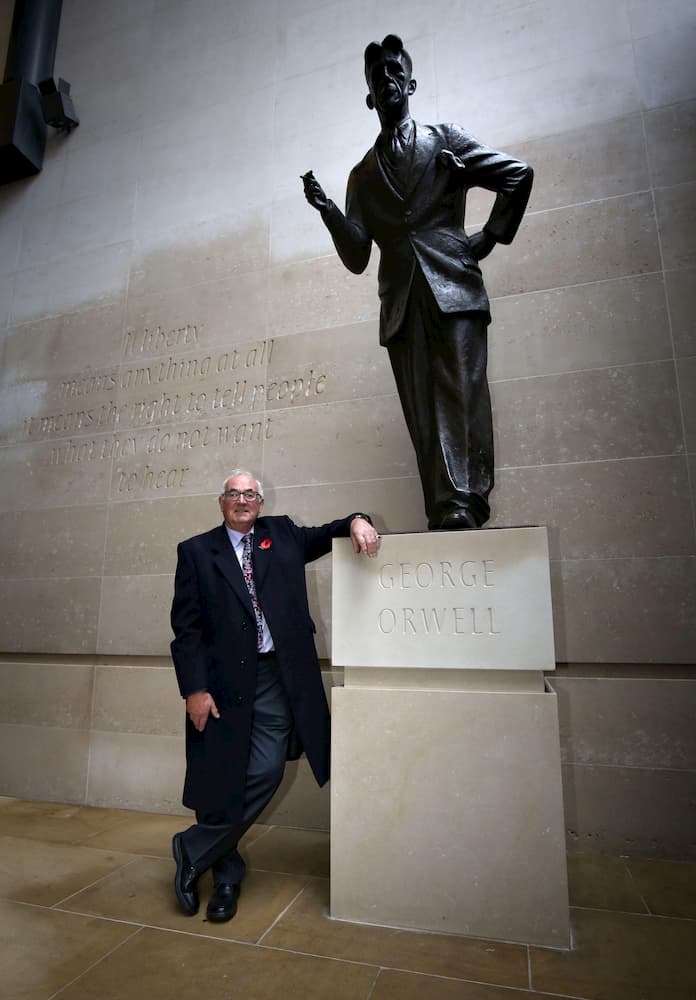
Richard Blair, Orwell’s adopted son, with the statue of his father
Regarding Orwell, he is hoist by his own petard here. He shows time and again in his writing and self-reflection, especially in the extraordinarily good essays, that he is able to be critical of and stand outside the thinking of his time. His striking remaking of himself, and his commentary on that in Part II of The Road to Wigan Pier, addresses directly the way in which he turned on his own class and its ideas, and rethought his approach from first principles. As he wryly notes in the very first sentence of Part II, ‘The road from Mandalay to Wigan is a long one and the reasons for taking it are not immediately clear’. So we can’t let Orwell off with any traces of misogyny, because he’s already shown that he’s not bound by the thinking of his time. Again, I address the misogyny shown in parts of Down and Out in Paris and London in my Introduction to the joint volume, Down and Out in Paris and London and The Road to Wigan Pier.
Where does this leave us with George Orwell and women? Honesty compels me to wonder whether I’m inclined to forgive Orwell for attitudes that I’m not prepared to forgive in other writers. I do so, I think, because Orwell more than any other writer I know is attuned to the complexities of thinking in these areas. Seldom does he take a standard or unthought position. His fiction has well and truly been ‘ahead of its time’. But more significantly, his ideas have remained somehow of the moment – this moment as well as his own. I don’t defend his somewhat careless attitude to the women in his life, but neither do I believe that is the whole story. The women themselves were actors in that story – and in Eileen’s case, the script is not necessarily exactly as it has been written by Anna Funder. There is an irony that the latrine vignette, which she indeed writes very well, inevitably calls to mind Orwell’s vignette in The Road to Wigan Pier, where he exchanges a gaze with a young woman on her knees cleaning out a drain: ‘She knew well enough what was happening to her – understood as well as I did how dreadful a destiny it was to be kneeling there in the bitter cold, on the slimy stones of a slum backyard, poking a stick up a foul drain-pipe.’ The scene is based on an encounter recorded in his diary, and for the published version it is expanded and changed for dramatic effect. But the moment of understanding is the same. This occurs not long before he moves into the ill-equipped cottage at Wallington, and the year before he marries Eileen. What do we do with this? Perhaps we shrug our shoulders and think, ‘Writers!’ Perhaps we share Funder’s view and see an exploited Eileen and an oblivious George, able to write about a woman’s misery but unable to see it in his own marriage. Perhaps we remember the blood on his shirt and the sacrifices he made to his own health for his writing. Perhaps we remember his tireless devotion after Eileen’s death to their adopted baby Richard, who is remarkably still with us, himself a tireless advocate for his father’s work and legacy. For myself, I think – Orwell got something right in that passage. He understood the woman; more than that, he truly saw the woman; he understood himself and how much more freedom he had than her; and he put it into words in a way that leads us to understand all that too. That’s what good writing does.
Orwell works mentioned, published by Wordsworth: Nineteen Eighty-Four, Down and Out in Paris and London and The Road to Wigan Pier. A selection of Orwell’s essays is included in these volumes.
George Orwell, Essays, Penguin, 1984
George Orwell, Homage to Catalonia (1938), Penguin, 1962
Bernard Crick, George Orwell: A Life, Penguin, 1980
Anna Funder, Wifedom: Mrs Orwell’s Invisible Life, Hamish Hamilton, 2023
Douglas Kerr, Orwell and Empire, Oxford University Press, 2022
D. J. Taylor, Orwell: The Life, Vintage, 2003
D. J. Taylor, Orwell: The New Life, Constable, 2023
Sylvia Topp, Eileen: The Making of George Orwell, Unbound, 2020
The participants in the Radio 4 Open Book programme were Adam Biles, Anna Funder and Sylvia Newman. It was chaired by Chris Power. It is available on BBC Sounds.
[1] Bernard Crick in his now 43-year-old biography, George Orwell: A Life, is really quite critical of Orwell in respect of Eileen’s death and gives a full account of Eileen’s letters around this time. He does make her visible.
Main image: Bronze statue of Orwell by Martin Jennings outside BBC Broadcasting House in London. Credit: Wirestock, Inc. / Alamy Stock Photo
Image 1 above: Eileen O’Shaughnessy (1905-1945) first wife of George Orwell Credit: Pictorial Press Ltd / Alamy Stock Photo
Image 2 above: George and Eileen’s former home – The Stores at Wallington Credit: Jason Ballard / Alamy Stock Photo
Image 3 above: Our edition of Nineteen Eighty-Four ISBN 9781840228021 can be found here: Nineteen Eighty-Four
Image 4 above: Richard Blair at the unveiling of a bronze statue of his father. Credit: PA Images / Alamy Stock Photo
Details of the Orwell Foundation can be found here: The Orwell Foundation
Books associated with this article

Nineteen Eighty-Four
George Orwell
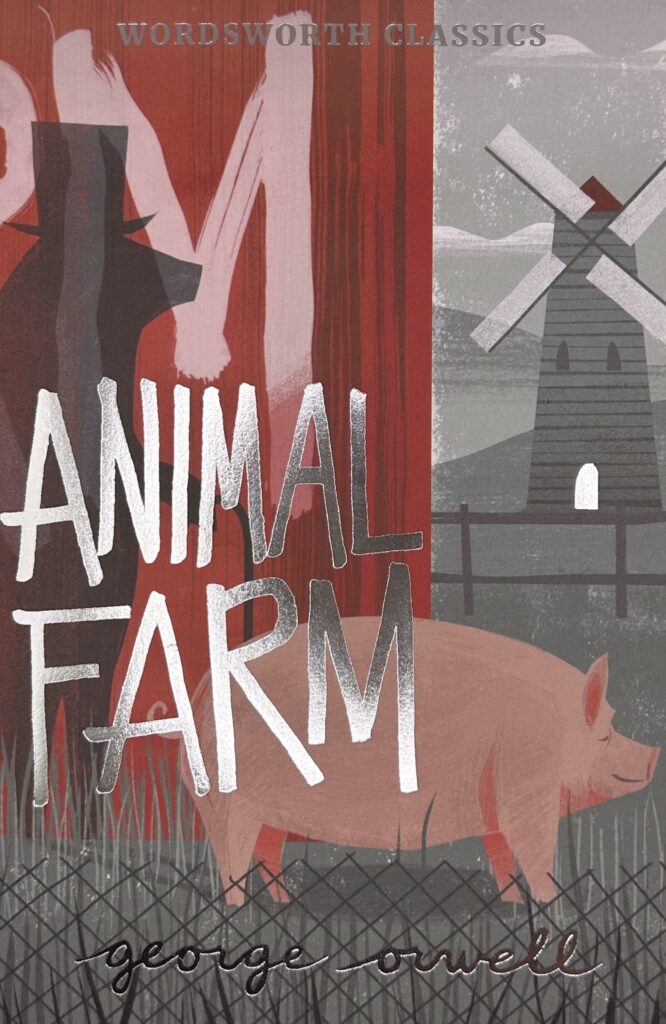
Animal Farm
George Orwell
